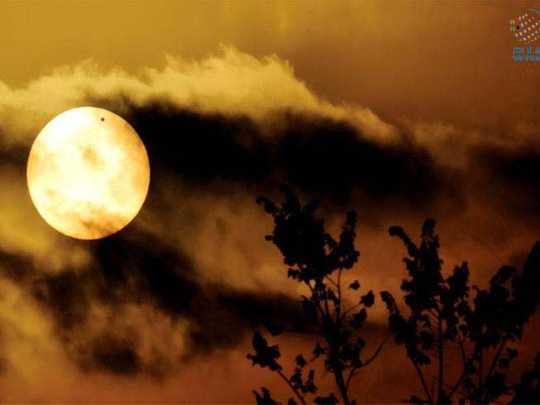
Dubai: On Monday, May 9, residents will be able to watch the planet Mercury pass across the sun.
The Mercury transit will be the first event in 10 years, with the last having took place in 2006.
In a statement, the Dubai Astronomy Group, said: “May transits, like this one, are also much rarer than the November transits which occur about twice as often. Both the transit preceding this one (in 2006) and the following three (in 2019, 2032 and 2039) are November transits.”
“After this one, the next May transit won't occur until May 7, 2049 -- 33 years afterwards,” said Dubai Astronomy Group.
The transit favors the Atlantic Basin with the entire transit visible over the North Atlantic. Furthermore, all of the Americas, all of Europe, most of Africa and parts of Asia will also be optimal for viewing a significant portion of the transit, weather permitting.
Unlike lunar and solar eclipses that typically last a few hours at most, including the partial phases, this transit of Mercury will last 7.5 hours. This means that at least part the event will be visible over a much wider area as the Earth rotates, and new areas become visible.
In fact, only Antarctica (where the sun does not rise in May), eastern Asia and Australia/Oceania will miss out on the event entirely, with the event occurring while the Sun is below the horizon.
Transits of Mercury may occur in either May or November. During the May transits, Mercury is near its aphelion point and appears bigger than in November transits.
During a transit, Mercury is seen as a tiny black dot.
In Dubai, the transit will start at 3.12 and will continue for the rest of the evening, although astronomers at the Dubai-based group pointed out that the sun will set while the transit in its prime center.
Where to watch Mercury transit
Dubai: The Dubai Astronomy Group will be organising an observation event with telescopes and gears to capture and broadcast the event live worldwide. The venue for the event will be the Mushrif Park in Dubai, and the program will start from 2pm onward till sunset.
Sharjah: The Sharjah Planetarium will be hosting visitors from 4.30pm until sunset, and will be providing equipment to watch the Mercury transit.
Abu Dhabi: The Emirates Astronomy Society will provide residents with an opportunity to watch the event near Marina Mall from 3pm onwards.
And remember, never look directly at the sun without a safe solar filter.












